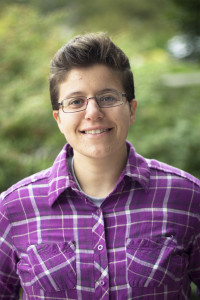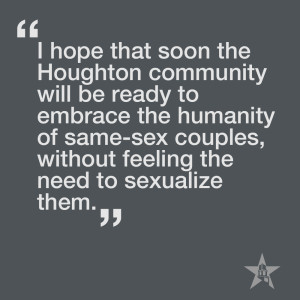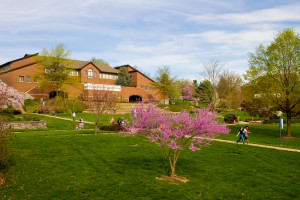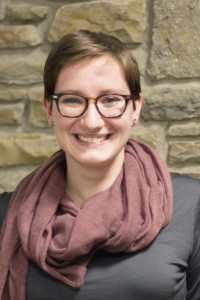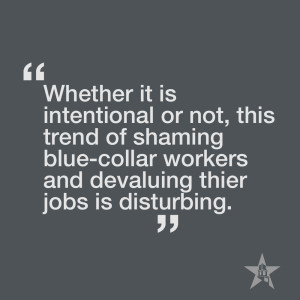Philosophy professor takes a leave of absence to head up a preeminent grant organization in his field.
Houghton’s philosophy department is rather small in proportion to some other departments, a fact which is not unusual considering the Houghton’s size. However, the philosophy department is currently missing one of its key members: Professor Christopher Stewart. Stewart has been in Nassau, Bahamas on a leave of absence from Houghton since Fall 2013 in order to work for the Templeton Religion Trust as its Vice President of Grant Programs.
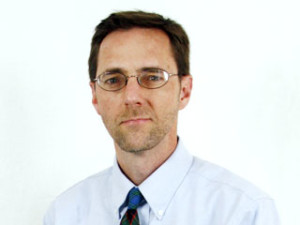 The Templeton Religion Trust, located in Nassau, Bahamas, is one of three organizations founded by Sir John Templeton. In addition to the Trust, there is the Templeton World Charity Foundation, also located in the Caribbean, and the John Templeton Foundation, based in Philadelphia, PA. According to Stewart, the three have identical missions, but separate funding, a strategy used by Templeton who believed that this “three-way approach would strengthen [the three foundation’s] ability to realize his vision over the long-run.” The mission of the John Templeton Foundation found of their website stated that it “serves as a philanthropic catalyst for discoveries relating to the Big Questions of human purpose and ultimate reality.”
The Templeton Religion Trust, located in Nassau, Bahamas, is one of three organizations founded by Sir John Templeton. In addition to the Trust, there is the Templeton World Charity Foundation, also located in the Caribbean, and the John Templeton Foundation, based in Philadelphia, PA. According to Stewart, the three have identical missions, but separate funding, a strategy used by Templeton who believed that this “three-way approach would strengthen [the three foundation’s] ability to realize his vision over the long-run.” The mission of the John Templeton Foundation found of their website stated that it “serves as a philanthropic catalyst for discoveries relating to the Big Questions of human purpose and ultimate reality.”
Stewart’s opportunity to work with this noteworthy organization grew out of his previous conversations with the John Templeton Foundation, and was eventually offered a job to assist with establishing the grantmaking platform for the Templeton Religion Trust. At the time, the trust had just recently been setting up infrastructure and an office following the release of its endowment from the Templeton’s estate following his death in 2008. The decision to take this opportunity “was and remains complicated,” according to Stewart, who has ties to Houghton that span over two decades. However, on a professional level, Stewart described the opportunity as a way to “continue [his] engagement with issues and topics that [he has] been involved with for a long time, but in a new way.” Moreover, this was a chance “to help build up an organization with a compelling mission,” Stewart resonated with, and to do so with the benefit of “significant resources to help make things happen all over the world.”
The biggest part of Stewart’s job as the grantmaker is to scout out projects to fund. Developing relationships by attending conferences, “visiting campuses, and tapping your existing networks,” are ways outreach happens, according to Stewart. Unlike the John Templeton Foundation, the Trust does not have an open admissions process, instead it is Stewart’s task to extend invitations by “developing near-term strategies and program themes consistent with [the Trust’s] broader long-term mandates and serve as the gatekeeper for formal inquiries and proposals.”
The Templeton Religion Trust funds a wide array of projects with 70% of the annual payout going toward projects pertaining to what Templeton called “Humility-in-Theology” which Stewart described as meaning three things: (1) the nature of divine or ultimate reality, (2) the nature of persons and personal flourishing, and (3) fundamental structures which include not only the fundamental physical structures of the world like infinity, space and time, and quantum reality, but also “prayer, purpose, altruism, creativity, and thanksgiving, which [Templeton] sometimes refers to as ‘spiritual realities.’” In essence, Templeton’s wish was to “encourage humility about how little we know about such realities,” and to increase the level of “openness to and enthusiasm for blending the resources of theology, philosophy, and the sciences in that pursuit.”
The remaining 30% of the payout is given to a collection of other interests, with the primary two targets being “Individual Freedom and Free Markets” and “Character Virtue Development.” Respectively, the two studies are aimed toward “research and advocacy to enhance individual liberty and advance free markets,” and “programs that develop character strengths in people,” said Stewart.
The mix of projects Stewart has been involved with thus far is interesting to say the least, “all with lots of potential to impact our understanding of life, the universe, and everything, as they say on Hitchhiker’s Guide to the Galaxy,” said Stewart. Included among his projects is a project on religious freedom called “Under Caesar’s Sword,” which is lead by a scholar at Notre Dame and a leader of the Religious Freedom Project at Georgetown. “This is a three-year, $1.1 million project that will support around a dozen field studies all over the world looking at the ways particular religious communities are responding to the efforts of other groups or even governments to restrict their religious expression or activities, why they adopt these strategies, and how effective they are.” Another project Stewart has worked on is “The World Well-Being Project” based at the University of Pennsylvania and overseen by Martin Seligman. According to Stewart, “this three-year, $3.8 million project is developing tools to measure well-being of communities as small as a classroom or as large as a nation-state using “big data” mined from sources like Twitter and Facebook. This is a field development project that will provide social scientists with powerful new tools to measure well-being and, hopefully, help find ways to improve the quality of people’s lives.”
On the science side of things, Stewart has worked on such projects as that run by
a mathematician at Harvard is called “Concerning the Mathematical Nature of the Universe,” “which is exploring whether or not the universe admits of a consistent description, or more generally, whether our universe be described by mathematics?” As well as a $1.6 million grant to BioLogos for them to develop their website, a major way they seek to achieve their mission of inviting “the church and the world to see the harmony between science and biblical faith.”
Fellow philosophy professor Carlton Fisher expressed that the philosophy department has suffered a loss with Stewart’s absence, “We miss him as a friend, a colleague, and we miss the contribution that he made, both in the philosophy classroom and in the leadership roles that he was performing.” Nonetheless, the department as a whole has a “sense of pride” regarding Stewart’s significant and impressive role with the Trust. According to Fisher, “it is a pretty big deal that a Houghton College faculty member has taken on this particular role.”

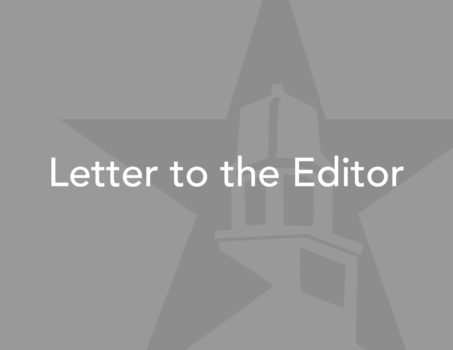
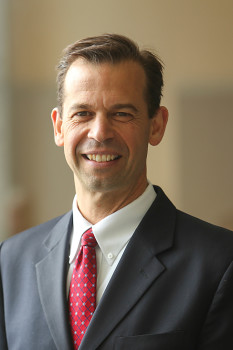
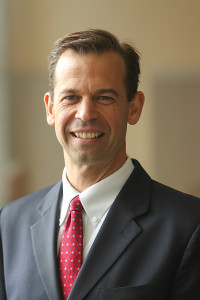 Regarding online education, Connell commented on Houghton’s current online presence, saying that although it is currently a small presence, he thinks Houghton needs to and will make more aggressive moves into the online market. Expanding its online presence would allow Houghton to reach previously unreachable audiences, as well as being a helpful way to generate revenue.
Regarding online education, Connell commented on Houghton’s current online presence, saying that although it is currently a small presence, he thinks Houghton needs to and will make more aggressive moves into the online market. Expanding its online presence would allow Houghton to reach previously unreachable audiences, as well as being a helpful way to generate revenue.
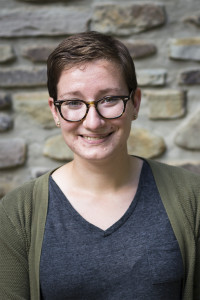 The articles in the series were selected from a large number of submissions, some of which we decided not to print for various reasons (e.g. unnecessarily inflammatory language). The stories we selected were balanced, fair, and honest, while maintaining a clear and distinct position on the issue. Additionally, we printed all pieces (editorials and letters) submitted by those responding to the series. The disparity in numbers is not a result of
The articles in the series were selected from a large number of submissions, some of which we decided not to print for various reasons (e.g. unnecessarily inflammatory language). The stories we selected were balanced, fair, and honest, while maintaining a clear and distinct position on the issue. Additionally, we printed all pieces (editorials and letters) submitted by those responding to the series. The disparity in numbers is not a result of 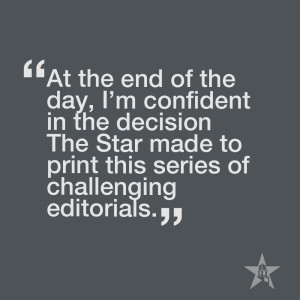 The Star
The Star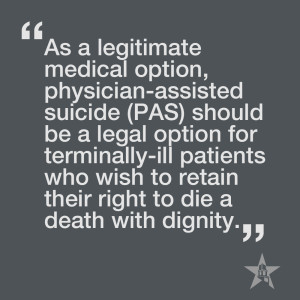 Often referred to as either “physician-assisted suicide” or “physician-sanctioned end-of-life option,” the decision that the Death with Dignity Act places in the hands of terminally-ill patients is their own right to die, and to die with dignity. This is a distinctly modern dilemma, one created by the exponential growth of medical technology that has extended the human lifespan considerably. While this progress is undeniably welcome and beneficial, it nonetheless leaves an increasing number of individuals with a life that is artificially prolonged far beyond a point they believe necessary or desirable. In a way, current medical progress has become harmful. It has gotten to the point that people can no longer die a natural death on their own terms.
Often referred to as either “physician-assisted suicide” or “physician-sanctioned end-of-life option,” the decision that the Death with Dignity Act places in the hands of terminally-ill patients is their own right to die, and to die with dignity. This is a distinctly modern dilemma, one created by the exponential growth of medical technology that has extended the human lifespan considerably. While this progress is undeniably welcome and beneficial, it nonetheless leaves an increasing number of individuals with a life that is artificially prolonged far beyond a point they believe necessary or desirable. In a way, current medical progress has become harmful. It has gotten to the point that people can no longer die a natural death on their own terms. 